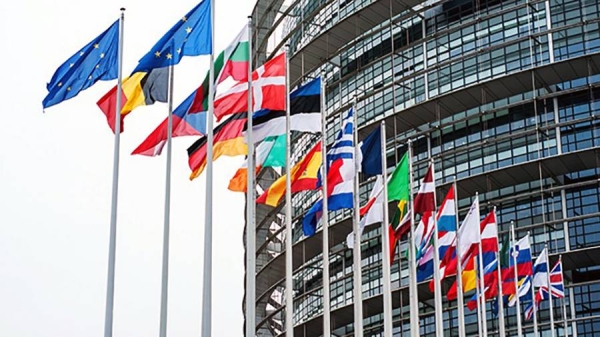
The head of the European Commission has vowed a swift response to a ruling from Poland’s top court rejecting the supremacy of EU law, which has thrown relations between Brussels and Warsaw into a crisis.
Ursula von der Leyen said she was deeply concerned by Thursday’s ruling of the Polish constitutional tribunal, which concluded that basic principles of EU law were incompatible with Poland’s constitution. “I have instructed the commission’s services to analyse it thoroughly and swiftly. On this basis, we will decide on next steps,” she said in her first public statement on the matter.
Neither Von der Leyen nor her officials gave any further detail on timing. “The fact that we say ‘swift’ does not tie us to any specific amount of time,” said the commission’s chief spokesman, Eric Mamer. “It means without delay, it means that we are going to look at this judgment, and the time it will take us to come with analysis will obviously depend on the complexity of the ruling and its implications for us.”
While the European Commission is embroiled in a legal dispute with Germany’s constitutional court over EU law, the latest ruling from Poland is seen by Brussels as far more serious. Polish judges have rejected the basic principle of EU legal primacy – a core pillar of the bloc’s legal order that all member states sign up to on joining.
The Polish ruling rejects significant articles of the EU treaties, including that member states will take “appropriate measures” to fulfil their obligations under EU law.
Politicians and legal scholars have described the move as a “legal Polexit” that jeopardises Poland’s access to EU funds and the rights of its largely pro-EU population and businesses.
France’s Europe minister, Clément Beaune, said the situation was very serious. “There is the risk of a de-facto exit,” of Poland from the EU, he told the BFM-TV broadcaster, adding that he did not want Poland to leave. “This is not a technical or a legal question. This is a highly political topic that adds to a long list of provocations aimed at the EU,” he said.
Luxembourg’s foreign minister, Jean Asselborn, told the Polish government it was playing with fire. “The primacy of European law is essential for the integration of Europe and living together in Europe. If this principle is broken, Europe as we know it, as it has been built with the Rome treaties, will cease to exist.”
Poland’s government has sought to defuse the crisis by saying the rejection of EU legal supremacy did not affect areas where the EU has competence, such as competition and trade.
But the political standoff is underscored as the judgment was requested by Poland’s prime minister, Mateusz Morawiecki, who argued that Poland’s EU membership since 2004 did not give EU law supremacy.
Officials in Brussels despair that they have no interlocutor in Poland, as the two sides clash over a range of issues, from the rule of law, to LGBTQ+ rights and Poland’s handling of asylum seekers at its border with Belarus.
EU officials think Morawiecki has backed himself into a corner, with no easy way out between the demands of EU law and satisfying hardliners in his party.
The ruling is the latest twist in a conflict between Brussels and Warsaw that began soon after Poland’s nationalist Law and Justice party came to power in 2015. The ruling party swiftly introduced changes to its legal system that increased government control over judges, widely condemned as weakening the rule of law.
The latest conflict adds to the dilemma in Brussels over whether to approve a €58bn (£49bn) coronavirus recovery plan for Poland. While EU authorities have approved plans for nearly all member states, decisions on Hungary and Poland have been stuck over concerns about the rule of law.
Von der Leyen’s spokesman said the commission had no plans to suspend work in assessing Poland’s recovery plan. “We are going to carry out the analysis [of the legal ruling] and in the meantime the other tasks that the commission has to undertake continue,” he told reporters.
EU officials were expected to approve the funds for Poland later this month, subject to conditions on judicial reform. But the latest court ruling complicates that goal, with some MEPs calling for all EU financial flows to Warsaw to be frozen as soon as the judgment is legally binding, because of concerns over lack of independent courts to safeguard proper spending of the money.
MEPs are also urging Von der Leyen to take Poland to the European court of justice over the latest ruling. “As guardian of the treaties, the European Commission has no choice but to initiate legal proceedings,” said Dutch vice-chair of the centrist Renew group, Malik Azmani. He said Von der Leyen “must come to the European parliament to explain the next steps”.












